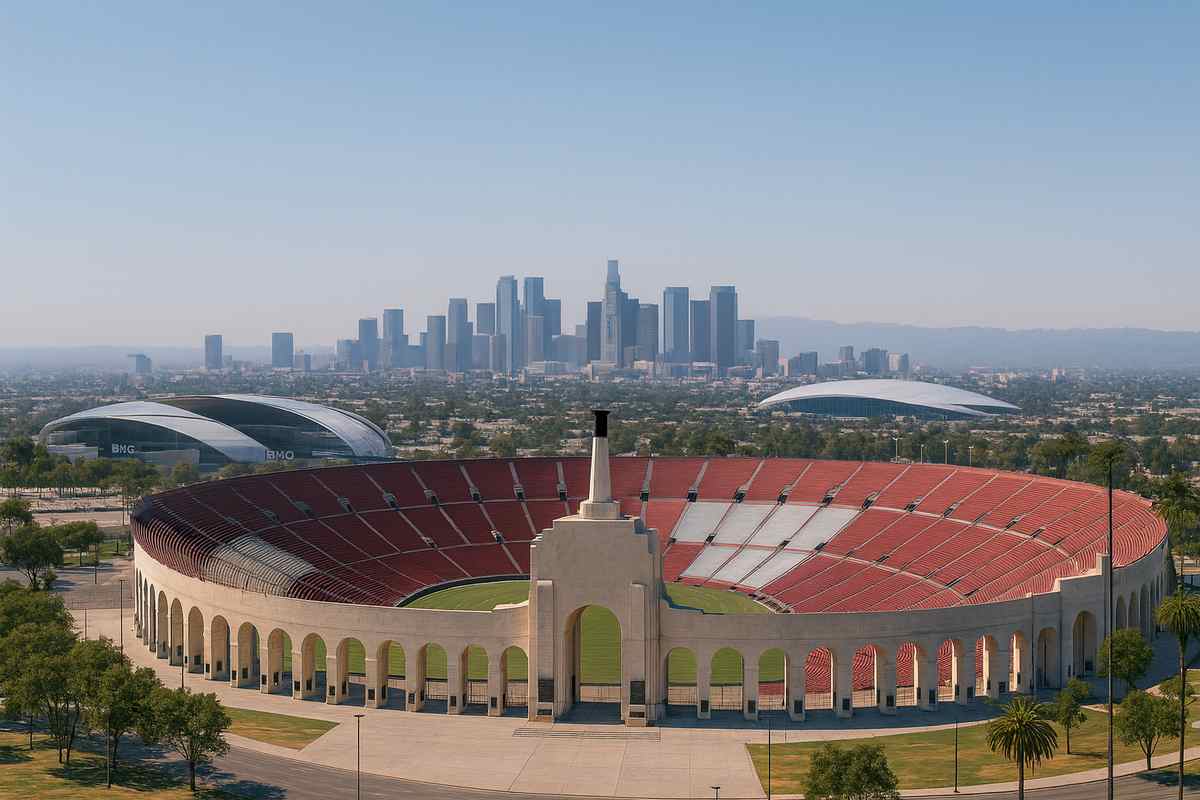When Los Angeles welcomes the world to the 2028 Summer Olympics, it will not just be hosting another edition of the Games—it will be showcasing a vision for how modern cities can integrate sport, culture, and infrastructure in a sustainable way. With three years to go, organizers have been unveiling venue updates that tell us a lot about how LA intends to balance tradition with innovation. From iconic stadiums to temporary arenas, the city is preparing to stage an Olympics unlike any before.
A Citywide Stage
Unlike previous hosts that built sprawling Olympic Parks from scratch, Los Angeles is leaning on its existing infrastructure. That approach not only cuts costs but also spreads events across the city’s neighborhoods, turning all of LA into an Olympic playground. Dodgers Stadium, the heart of baseball in Southern California, will once again host Olympic baseball and softball. For gymnastics, the Crypto.com Arena—home of the Lakers and Clippers—will be transformed into a global stage. Inglewood’s SoFi Stadium, already a marvel of modern architecture, will house the opening and closing ceremonies.
By using venues Angelenos already know and love, organizers are sending a clear message: these Games are for the city as much as for the world.
Innovation and Flexibility
Still, LA 2028 is not just about tradition. New venues and temporary installations are being built to accommodate debut sports. Flag football, making its Olympic debut, will showcase games at NFL-ready facilities, a symbolic link between American football culture and global competition. Cricket, returning in T20 format, will not be played in the heart of Los Angeles but at select locations outside the city, including grounds that already host international matches. Surfing, another sport with deep roots in Southern California, will take fans beyond the stadium to the beaches, blending sport and local culture seamlessly.
This flexible approach—using both permanent and temporary venues—shows a new way forward for host cities. Instead of pouring billions into stadiums that risk becoming “white elephants,” LA is focused on adaptability and long-term use.
Balancing Tradition and Modern Demands
Of course, the Olympics are more than just where the games are played. They are about the story a city tells about itself. For Los Angeles, the message is one of diversity, innovation, and sustainability. Venues like the Los Angeles Memorial Coliseum, which hosted the Games in 1932 and 1984, will once again be central, creating a symbolic bridge between past and present. But alongside these historic landmarks, organizers are embracing new disciplines, such as squash and climbing, housed in modern venues designed for both efficiency and fan experience.
For spectators, that means an Olympics where you might spend one day at a classic stadium steeped in history and the next at a cutting-edge arena showcasing sports that only recently joined the Olympic program.
Why These Venues Matter
To fans, venue announcements may sound like logistical details, but they shape the Olympic experience in powerful ways. The choice to spread events across the city opens up tourism opportunities for neighborhoods that rarely see Olympic crowds. Using familiar stadiums means fewer taxpayer burdens and more focus on athlete performance. And selecting iconic backdrops—like beaches for surfing or downtown arenas for basketball—ensures the Games will be memorable not just for athletes but for the global audience tuning in.
Looking Ahead to 2028
The countdown to LA 2028 is already under way, and as more venue updates roll out, one theme stands out: this is an Olympics that reflects its host city. Los Angeles thrives on reinvention, blending Hollywood glamour with cultural diversity, historic legacies with modern ambition. By choosing venues that balance efficiency, history, and innovation, the organizers are not only preparing for two weeks of competition—they are redefining what it means to host the Olympic Games in the 21st century.
When the torch is lit in 2028, the city won’t just be staging sports—it will be showcasing a blueprint for the future of mega-events. And that is what makes the LA Olympics one of the most anticipated Games in recent memory.






